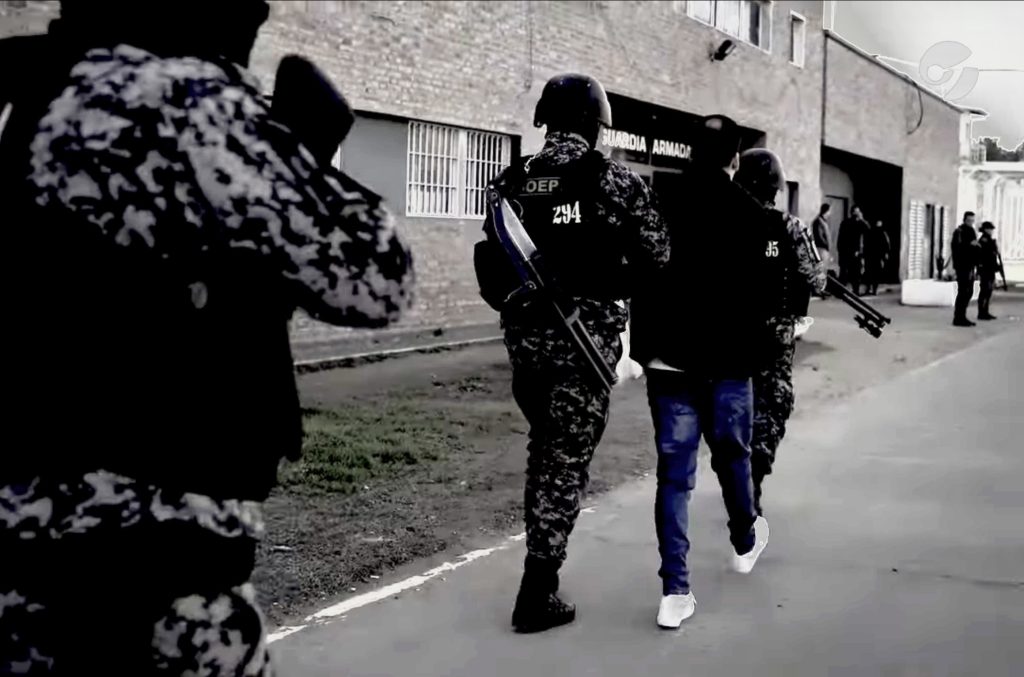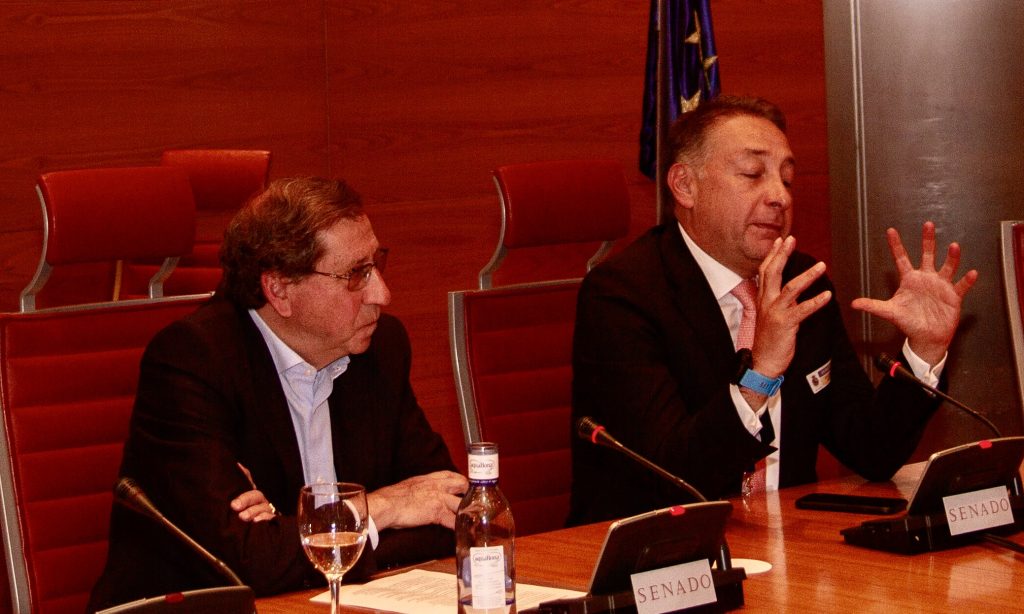
PRO-RUSSIAN HACKERS SEEK TO BLOW UP ALL 2024 ELECTIONS
By Antonio M. Figueras / Escudo Digital
This year, more than 4 billion people, half of the planet’s population, are called to the polls: more than 70 countries including Russia (with elections already held and the results known in advance), the United States, the European Union, Indonesia, Mexico and Taiwan. If we add to this the two regional elections in Spain in the coming weeks (Basque and Catalan elections) and the celebration of the Olympic Games in Paris, it can be said without a doubt that we are facing the perfect storm for hackers to redouble their cyber-attacks and their spread of fake news.
Cybersecurity expert Ramon Rodriguez believes that we are facing “a year of goods for hackers.” “It’s a business model in which you capture talent anywhere on the planet,” he says. These soldiers of fortune serve governments and institutions, they do not act as lone wolves but are part of orchestrated campaigns in what some call World War III.
Cosme Ojeda Puig, lecturer in the degrees of Communication and International Relations at the San Pablo CEU University (Madrid), explains to Escudo Digital that “unfortunately, technologies are becoming more and more effective and can be used in very sophisticated ways”. “At the same time, everyone believes that they are not manipulable and that others are, but then reality shows otherwise,” he adds. The expert believes that various committees of the British Parliament, the U.S. Government and Congress and the European Parliament are investigating these matters in view of “the intensity of cyber-attacks”.
DESTABILIZING THE POLITICAL SYSTEM
Scholars point out that cyberterrorists working for Russia, China, Iran or North Korea seek to destabilize Western political systems. While Russian hacker activism takes the cake, China is not far behind. It concentrates a large army of computer scientists in a neighborhood of Shanghai, intruding into universities and companies, with the United States as its main target. The risk is amplified by the possibilities offered by artificial intelligence and the lack of control of social networks such as TikTok (of Chinese origin) and Telegram (of Russian origin).
Cyber-attacks are not incompatible with traditional forms. Last Friday it became known that Belgium has opened an investigation into suspicions of Russian interference in the elections to the European Parliament next June 9. The intelligence services have confirmed “pro-Russian interference networks”, declared the Belgian Prime Minister Alexander De Croo. The Kremlin’s purpose is to “help elect more pro-Russian candidates to the European Parliament” in order to weaken the European Union’s support for Ukraine, De Croo told journalists. Another recent investigation by the Czech Republic has uncovered a pro-Russian influence operation, which has even been paid to promote a Russian agenda among members of the EU Parliament.
THE FOCUS ON SPAIN
Spain, with regional elections in the Basque Country (April 21), Catalonia (May 12) and the European Parliament, faces the challenge of minimizing cyberattacks and disinformation campaigns in a very specific context. We are in Europe,” says Rodriguez, “in NATO, immersed in the war in Ukraine, with a government policy of strong support for the creation of the Palestinian state. These are circumstances that generate open fronts in a very tense world”.
The Russians, for their part, have put the focus on independence, especially in Catalonia. The disloyalties, previously Basque with terrorism and now Catalan, the so-called post-modern coup d’état, are very serious events in a success story such as the Spanish transition,” Ojeda argues. The Putin government is interested in anything that destabilizes the international order, the system of values and alliances established in the Western world after World War II”.
The most stable countries in the world have been experiencing economic problems since 2008 and are experiencing situations of public disenchantment towards the traditional parties. Ojeda recalls that of all the regions of Europe, “the only one that does not respect the framework of the rule of law is Catalonia. It is a good place then for hackers to leverage and seek to destabilize. The institutions in Catalonia have been frankly irresponsible. Russia is very interested in that,” he points out.
Rodriguez points out the ease with which an initiative to spread fake news can be carried out: “A campaign against the Catalan elections can be designed from a laptop in a Starbucks in Manila (Philippines). The 5G has opened many attack vectors, because before a very strong bandwidth was needed for these actions. About Carles Puigdemont’s relations with the Russians, it is not always easy to distinguish truth from lies, information from hoaxes. Nor do some of our media contribute to the dissemination of contrasted news”.
Nor is special expertise required in all cases, says the cybersecurity expert: “You don’t need to be a cracker, a top hacker, to be able to launch a disinformation campaign on social networks. In fact you can be hired on the Darknet, even on some forums. So with technical resources the danger is even greater.”
A cyberattack on a company or an infrastructure may be easier to detect, but hoaxes are more diffuse in nature. “Public opinion lacks the perception of insecurity. Moreover, in Europe, one out of four voters is opting for radical parties, which was not the case two decades ago. This is the case in Finland, Sweden, Denmark and the Netherlands, countries that were very much in favor of agreements,” says Professor Ojeda.
“There is also a breeding ground for criticism of corrupt politicians, of institutions, and of far-fetched ideas, such as the independence referendum; all of this undermines the shared values we had. Spain has done very well in building institutions over the last forty years, but unfortunately it is very easy to destroy them,” he said.
ELECTRONIC VOTING
One of the fears is that cyberterrorists will move on from spreading fake news to attacking the computerized election counting system. Ojeda thinks it is not possible, neither here nor in the United States, despite small problems with some ballots: “The ballot boxes, the polling stations, the system… cannot be manipulated, nor can an intrusion be carried out”.
In the elections held last year in Spain, the Coordination Network for Security in Electoral Processes was activated, which had a group dedicated to the fight against disinformation campaigns coordinated by the Department of Homeland Security and formed by the agencies of the Permanent Commission against disinformation. The most common method employed by cyberterrorists on election days is to seek the collapse of certain websites so that information is blocked, as the pro-Russian group known as NoName057 did in the elections of 23J 2023.
Regarding the ability of cyber-terrorists to influence the recount, Rodriguez is skeptical, but leaves the possibility open: “Large IT companies detect security flaws because they slip into their kitchens. Nobody is exempt from problems, especially if there is collaboration with the enemy from within. In any case, the percentage of an attack taking effect and taking down the platform is minimal. Everything is audited and the control methods are very advanced with code verifications, but no system is invulnerable”.
Rodriguez bets on electronic voting to double security in elections: “The usual thing in electronic voting is to use the Shamir algorithm. It is based on the fact that it has several certificates and a certain number of them are needed to be able to decrypt the information, in this case the votes. Nowadays it is safer to make an electronic vote than a paper one, because there are more control methods. Among these methods of control that have increased is the passwordless system, without a password, which relies on biometric systems. A key is created in the equipment that is shared with the server that requires this type of authentication”.
THE WAR IN UKRAINE IN THE SPOTLIGHT
The invasion of Ukraine has spurred hacker activity in their battle for disinformation. Traffic from Russia and related countries has increased,” says Rodriguez. And they are not always the actions of a hacker who knows how to look for the guts, sometimes it is enough with certain applications to stop state resources, such as official pages”.
This change in the security paradigm is attested to by detailed research, such as A Spanish vision of the EU: 2024-2029, an exhaustive study carried out by experts in European policy and directed by Javier Elorza, Spain’s ambassador to the EU, which includes the analysis Spain, at the forefront of the Europe of Defense, carried out by the Spanish ambassador Nicolás Pascual de la Parte.
This text addresses the consequences of the Russian aggression against Ukraine in the international order and the need to deepen the common Defense policy in Europe, as part of a global strategy, emphasizing the fight against cyber-attacks: “Beyond supporting Ukraine as far as necessary and providing it with all the material assistance it needs as the best response to Russia’s warmongering revisionism, Defense Europe must equip itself with the means to prevent, mitigate and repel cyber attacks and disinformation campaigns; strengthen its military and civilian resilience to respond to threats in the ‘gray zone’ of the spectrum; coordinate its fight against international terrorism; stabilize its near neighborhood; manage irregular migration flows; secure supplies of essential commodities and services; maintain an open trading system; and lead the international regulation of new technologies, especially artificial intelligence.”
The report concludes that to ensure security the actions envisaged would be: “Improving intelligence services; developing tools and response teams against hybrid threats; establishing a cyber defense and cyber diplomacy policy; tackling disinformation and interference by foreign actors; creating an EU space strategy for security and defense; and strengthening maritime security.”
THE ROLE OF NATO
The Western world is defending itself from all possible quarters. NATO’s Steering Committee of Excellence for Cyber Defense Cooperation is dedicated to research and study of cyber warfare and cyber security. Its headquarters is in Tallinn (Estonia) and counts, among others, with Spanish experts. In 2022, NATO made it clear that cyber attacks can be considered armed attacks and could lead to the activation of Article 5 on mutual defense between member countries.
In the United Nations, the creation of a new corps of “cyber blue helmets” has been proposed to protect citizens from cyberterrorism and cybercrime. In Spain, the National Cryptologic Center, attached to the National Intelligence Center, is the body in charge of overseeing cybersecurity, given the alarming increase in threats, as shown in the Department of Homeland Security report for 2023.
This report warns that the actions of hostile Intelligence services grew in Spain. The analysis distinguishes between false information (fake news) and misinformation (misinformation). It also explains the evolution of the campaigns: “In the context of the war in Ukraine and the conflict in the Gaza Strip, an increase in anti-Western, anti-European and sometimes anti-Spanish narratives has been detected in multilateral forums, particularly within the United Nations. Russia continues to opportunistically promote disinformation campaigns. Thus, it has manipulated Spain’s support for Ukraine to launch disinformation campaigns aimed at introducing into the public debate doubts about Spain’s membership in NATO”.
The study also addresses the Chinese influence: “The official Chinese media and its propagandists in social networks in Spanish have amplified many of the pro-Russian narratives, in such a way that there has been a confluence of messages, based fundamentally on expressing a rejection of the United States and the current international order”.
U.S. ELECTIONS
The world will watch expectantly as the U.S. presidential election takes place on November 5. Joe Biden and Donald Trump will measure their support after a campaign in which fake news will surely play an important role. According to Ojeda, “their impact is not so much that people vote for a certain candidate, but that they do not vote for the opponent”. “The constant questioning of institutions, of politicians, influences less people to participate, for example, that young people, who support Biden more, do not vote”, he adds.
To stop destabilization campaigns and cyber-attacks, Rodriguez favors two tools, the technical and the social, “which consists of evangelizing”. “Apart from powerful security systems, a personal culture and training are needed. A hacker can find a good attack vector when there is a lack of knowledge,” he stresses.
————
ANTONIO M. FIGUERAS, journalist and writer. With a degree in Journalism and Hispanic Philology, he has worked in different media, such as ABC and Vozpópuli. He is the author of the novel ‘La coleta de Disney’ (2018).
This text was originally published in Escudo Digital, with whose authorization we reproduce it here.



